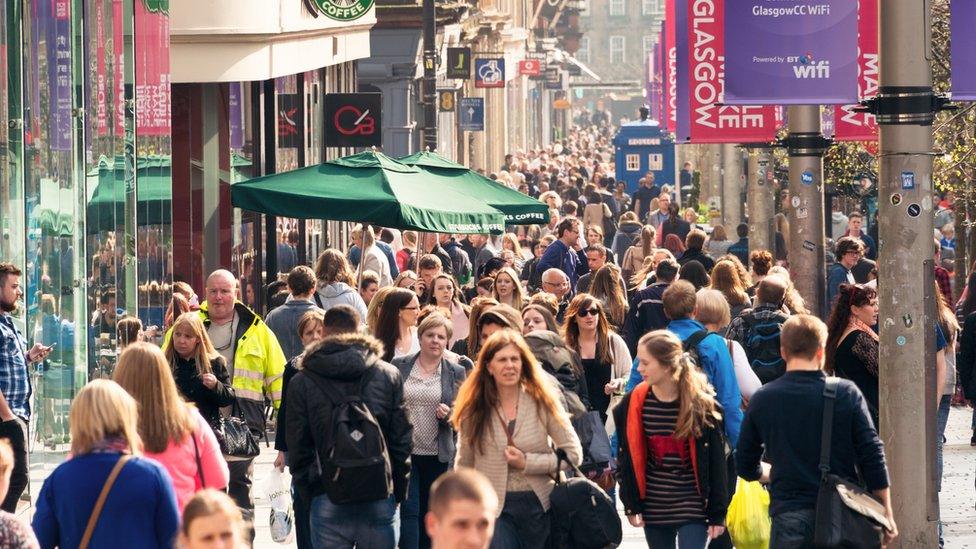Scottish population reaches new high
- Published
- comments

Scotland's population has risen for the eighth year running, with migration driving the increase.
The country had 5,424,800 people living in it on 30 June last year - 20,100 more than the previous year and a new record high.
Net migration was largely behind the rise despite the number of people moving from overseas dropping after the Brexit vote.
And the rate of growth has slowed compared with previous years.
This is due to a reduction in overall net migration, with 23,900 more people moving to Scotland from overseas or elsewhere in the UK in the year to 30 June.
This was lower than the 31,700 more people who moved to the country in the previous year.
Some 13,400 more people migrated to Scotland from overseas than left in the year to June, but this was lower than the previous year when it was 22,900.
Number of deaths
The number of deaths also increased, with 3,800 more deaths than births in the year to mid-2017.
Scotland's latest population growth remains in line with the normal ranges seen over the past decade, where annual growth varied between 0.3% to 0.7%.
The statistics were released by the National Registrar for Scotland, who said the population was continuing to age, with just under one in five people (19%) aged 65 and over, compared with 16% in 2007.
People aged under 16 made up 17% of the population in mid-2017.
The growth in Scotland's population also varied across the country - with 21 council areas seeing an increase over the past year, with the remaining 11 experiencing a decline.
The greatest increase in population was in Midlothian, which grew by 1.7%, while the greatest decreases were in Aberdeen City, Inverclyde and the Shetland Islands where the number of residents decreased by 0.5% over the year.